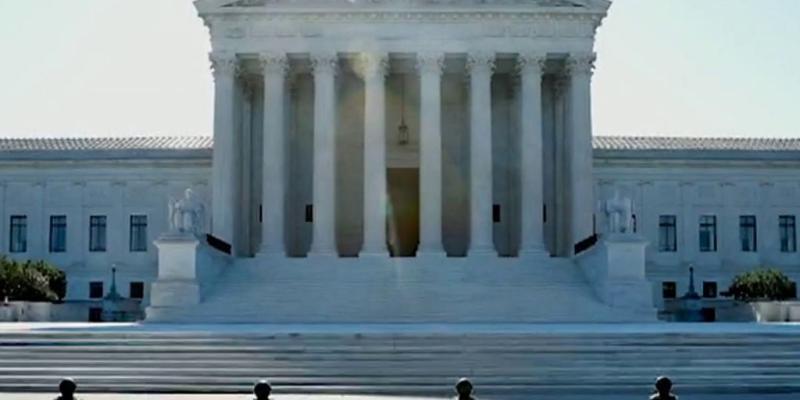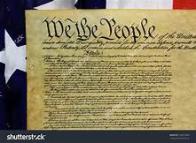Supreme Court rules states can sanction or remove 'faithless' presidential electors
By: Tyler Olson (Fox News)



Becket Law VP and Executive Director Montse Alvarado breaks down the case out of Montana.
The Supreme Court on Monday upheld state laws requiring those chosen for the Electoral College to back the popular winner in their state's presidential race, a rebuke of a group of so-called "faithless" presidential electors in Washington and Colorado who sued after they were sanctioned for voting contrary to pledges they took before becoming electors.
The court ruled 9-0 in a pair of cases that states can enforce pledges requiring that electors of their states follow the will of the voters when casting their electoral ballots.
The cases come after a group of Democratic electors that called themselves the "Hamilton Electors" voted for moderate Republicans instead of Hillary Clinton in 2016, in an unsuccessful effort to convince Republican electors to vote for somebody besides President Trump.
"Among the devices States have long used to achieve their object are pledge laws, designed to impress on electors their role as agents of others," Justice Elena Kagan wrote in the court's opinion. "That direction accords with the Constitution—as well as with the trust of a Nation that here, We the People rule."
Though many voters don't realize it, when Americans cast their ballots in presidential elections they are actually voting for "electors" who later cast the official ballots that decide the presidential election. They almost always rubber-stamp the popular vote winner in their state, but at times have voted for a different candidate, as the Hamilton Electors did in 2016.
The Monday ruling does not completely bar the possibility that there could be faithless electors in the future -- the court ruled that states can require their electors to vote for the popular winner, not that they must.
The case Kagan wrote the opinion for is called Chiafalo v. State of Washington. In that case, the justices upheld the ruling of the Washington Supreme Court. In an unsigned opinion, citing the reasoning of the Chiafalo opinion, the justices separately overturned the 10th Circuit Court of Appeals' ruling that states could not enforce elector pledges, in a case named Colorado Department of State v. Baca.
Kagan added: "The Constitution's text and the Nation's history both support allowing a State to enforce an elector's pledge to support his party's nominee—and the state voters' choice—for President."
Fox News' Bill Mears contributed to this report.
Tyler Olson covers politics for FoxNews.com.

 Article is LOCKED by author/seeder
Article is LOCKED by author/seeder








9-0 ! Seems clear cut.
However, it seems that Kagan is saying it will be up to each state to enforce the law.....Am I correct?
The Constitution says the individual states are in charge of how they hold their elections and this seems to be inline with that interpretation.
I do understand those who defend states rights.
Yes, they all ruled that those faithless electors who refused to cast their electoral vote for Clinton who won their States popular vote were wrong and could be penalized by their States. Hopefully that will prevent any dumb fuck sycophant electors casting their electoral vote for Trump even though the popular vote in the majority of States will easily go to Biden.
Thank you SCOTUS.
" Hillary Clinton, lost five of her pledged electors while the Republican Party nominee and then president-elect, Donald Trump, lost two"
Even the guy who pushed this all the way to the supreme court was one who changed his vote from Clinton, and as you can see, he lost.
"The people" is usually in reference to a majority of a group, yet here, once again you reference a minority and claim to speak for them which is both dishonest and ignorant.
"The people", aka the majority, are in favor of Joe Biden and want to Dump Trump.
Even Fox shows Biden ahead by double digits. So you can keep "dreaming the impossible dream" of a vile serial adulterer winning the white house again, but the majority of Americans have never supported the sick joke in the oval office.
Oh, damn!
What will the left do if Trump wins the EC vote again?
Can't be begging for electors to vote for Biden now, can they?
There has never been an election in the USA where faithless electors changed who would be elected PotUS. What you describe has never happened and is extremely unlikely.
Human electors is an obsolete safeguard. Instead of going through the motions, states should simply calculate the congressional electoral votes based on the winners for each congressional district and then add 2 (senator electoral votes) for the popular winner of the state.
Do this and there can be no faithless electors (and we avoid the unnecessary time and money used to support human electors).
Does the EC do anything other than every four years?
Nope
Then they did a piss poor job last time.
This seems to be the republican idea in blue states only, as it would be harmful to republicans in red states, but beneficial to republicans in blue states. Which is why blue states will reject the concept.
It counters the NPV movement of democrats in red states.
Neither is truly willing to give up any ground, imo.
My recommendation gives no advantage or disadvantage since the control of allocation remains in each state. It simply removes unnecessary electors; the state lose no control. Foe example, if states want to award congressional electoral votes based on the popular vote, they still can (but I think my recommendation is more fair).
My point was to illustrate how we can easily do away with human electors.
It still would not address the faithless electors. It was 5 democrats that refused to cast electoral votes for Clinton and 2 republicans that refused to vote for Trump, in 2016.
Baron, how can you say my suggestion would not address faithless electors when I am suggesting we do away with human electors? Without human beings, it is impossible to have a faithless elector. If the 'elector' is simply a calculation, 'faithless' is not possible.
Given the frequency of the term "electors" in the constitution and the legal definition... just how would you propose eliminating the human element? Then there is the matter of state constitutions/laws regarding the term "elector" and method of selection.
See @3
That does not address the legal definition of elector and the Constitution.
I am going to have to guess at your concern then. Are you talking about how I would go about amending the CotUS? That is, are you asking me about the procedural method of effecting the ratification of amendments so that my recommendation becomes real?
My recommendation @3 is an idea for modernizing the electoral college. The key change is to eliminate human electors. I described how that could be done logically with a simple calculation. If you have questions/comments on that then fire away. But if you are moving to the next step and asking how I would solve the problem of ratifying amendments to the CotUS (and then adding state amendments too) then you have gone far beyond the intent of my recommendation.
So my request is that you weigh in on my recommendation assuming that it is possible for it to be ratified.
Granted the constitution gives leave to the states and D.C. to determine the method of selecting electors of the college. However, the term electors has historically meant human electors.
While it is a novel concept, it would require an amendment to be written and ratified. I cannot assume it would be ratified.
So you were indeed asking me how to effect amendment ratification. Why? Ratification stops virtually every idea from happening. So no matter what is suggested regarding the CotUS someone can always retort with: ‘yeah, but how ya gonna get it ratified?’.
How about a comment on the idea itself instead of simply tossing out the obvious roadblock we face on any constitutional change?
As an aside, since you are focused strictly on ratification of a constitutional amendment, one thing I like about my recommendation is that it does not carry the kind of controversy normally seen with amendments. Eliminating human electors and replacing with a calculation gives no advantage to either party / ideology or religion. It simply is a modernization of process; a change that considers the capabilities of contemporary society such as immediate information access and a well-educated public (compared to that in place at our founding).
Nobody gains any advantage. We just eliminate the potential for faithless electors and the time and expense of going through the ancient process required to have these token roles assumed by human beings.
One could, alternatively, view this as replacing a human elector with a virtual elector — a cyber elector.
Nowadays it is next to impossible to achieve any constitutional change because the nation is so divisive. A change that does not yield advantage or disadvantage to the competing factions while making the process much more efficient and predictable seems, to me, to be one most likely of coming to fruition. In other words, if this cannot be ratified then I am hard-pressed to imagine any significant change that could be ratified.
"here, We the People rule"
Possibly the 5 greatest words ever set forth in a Supreme Court decision. May it be that way forever.